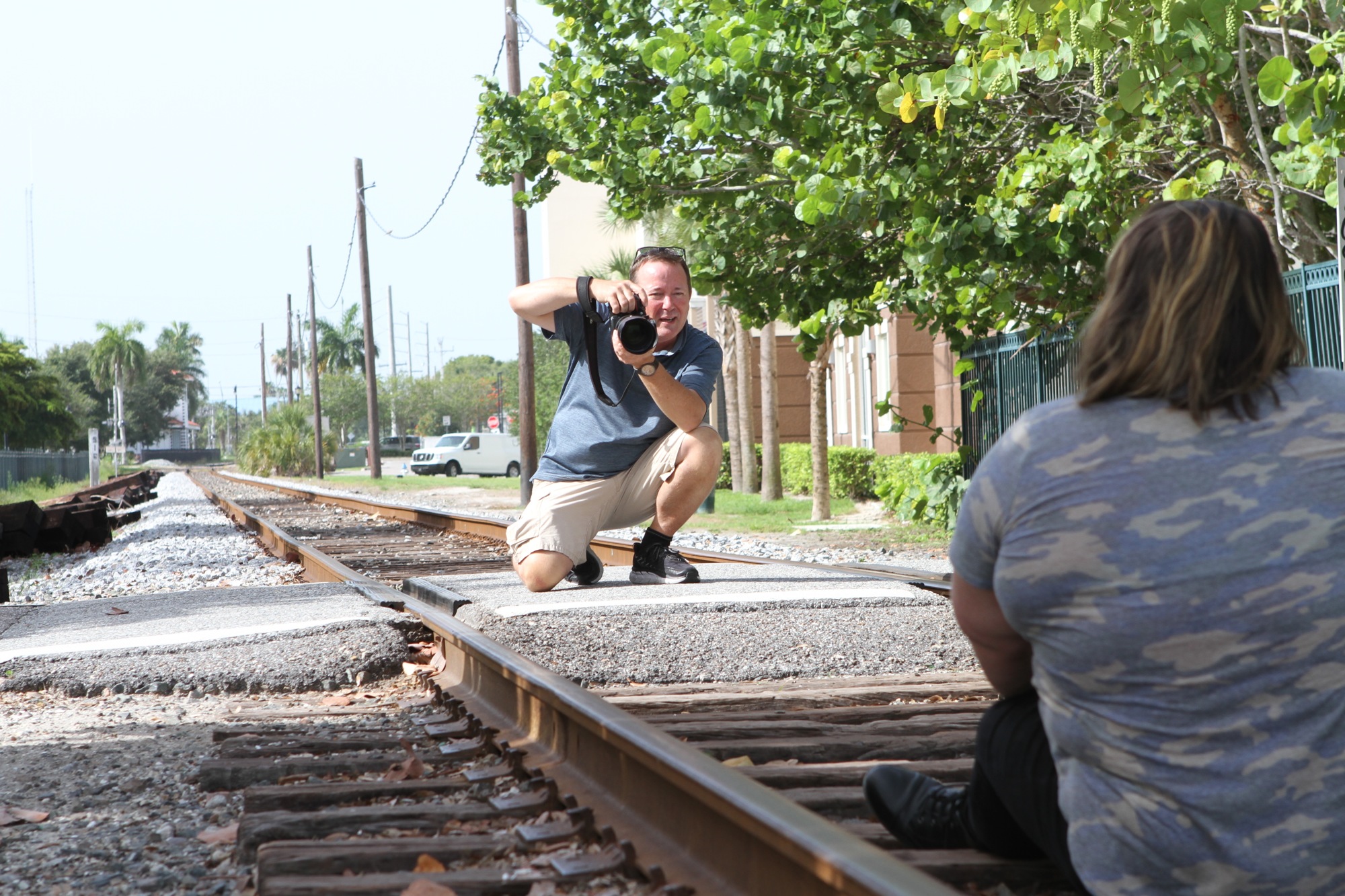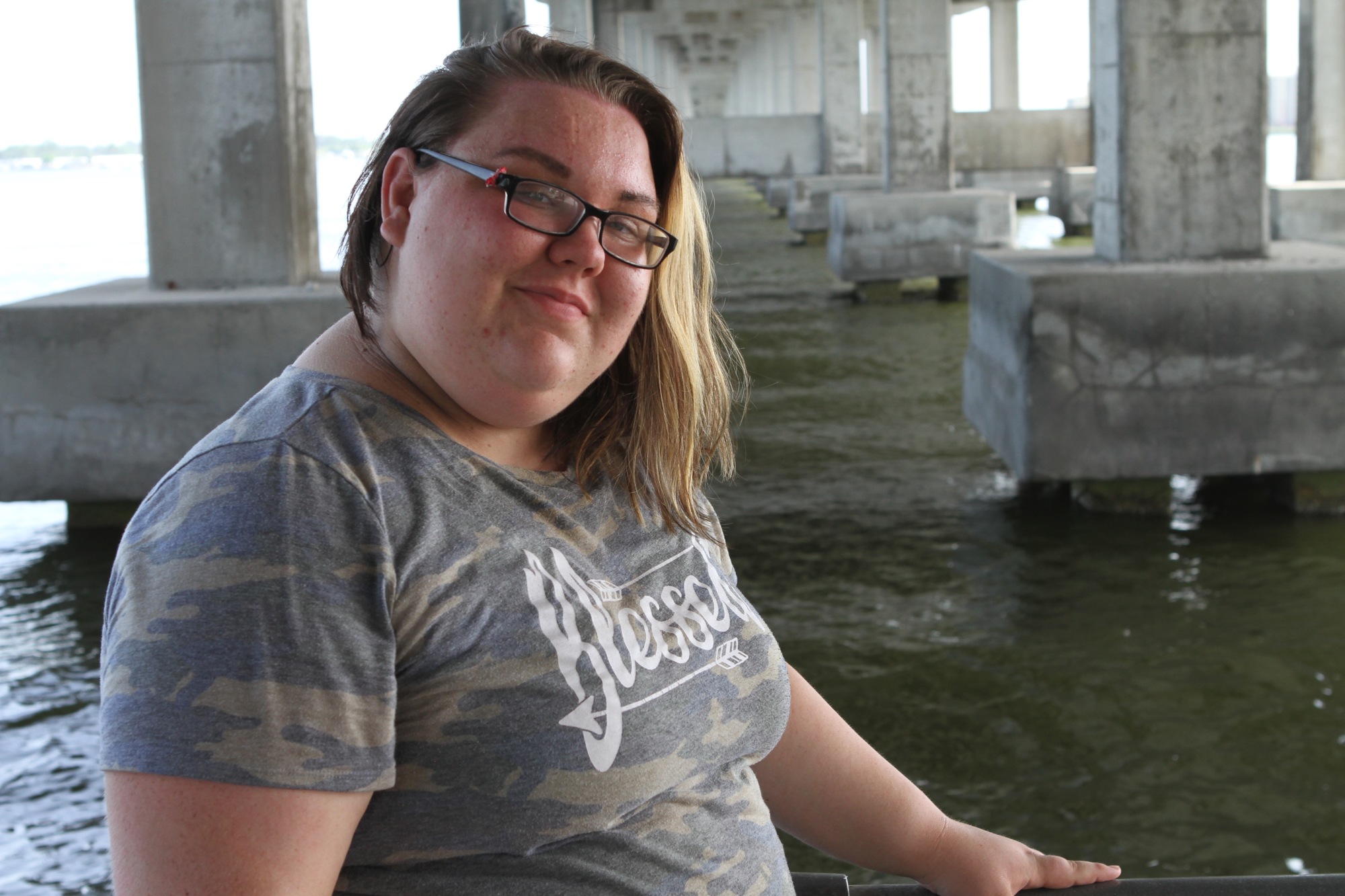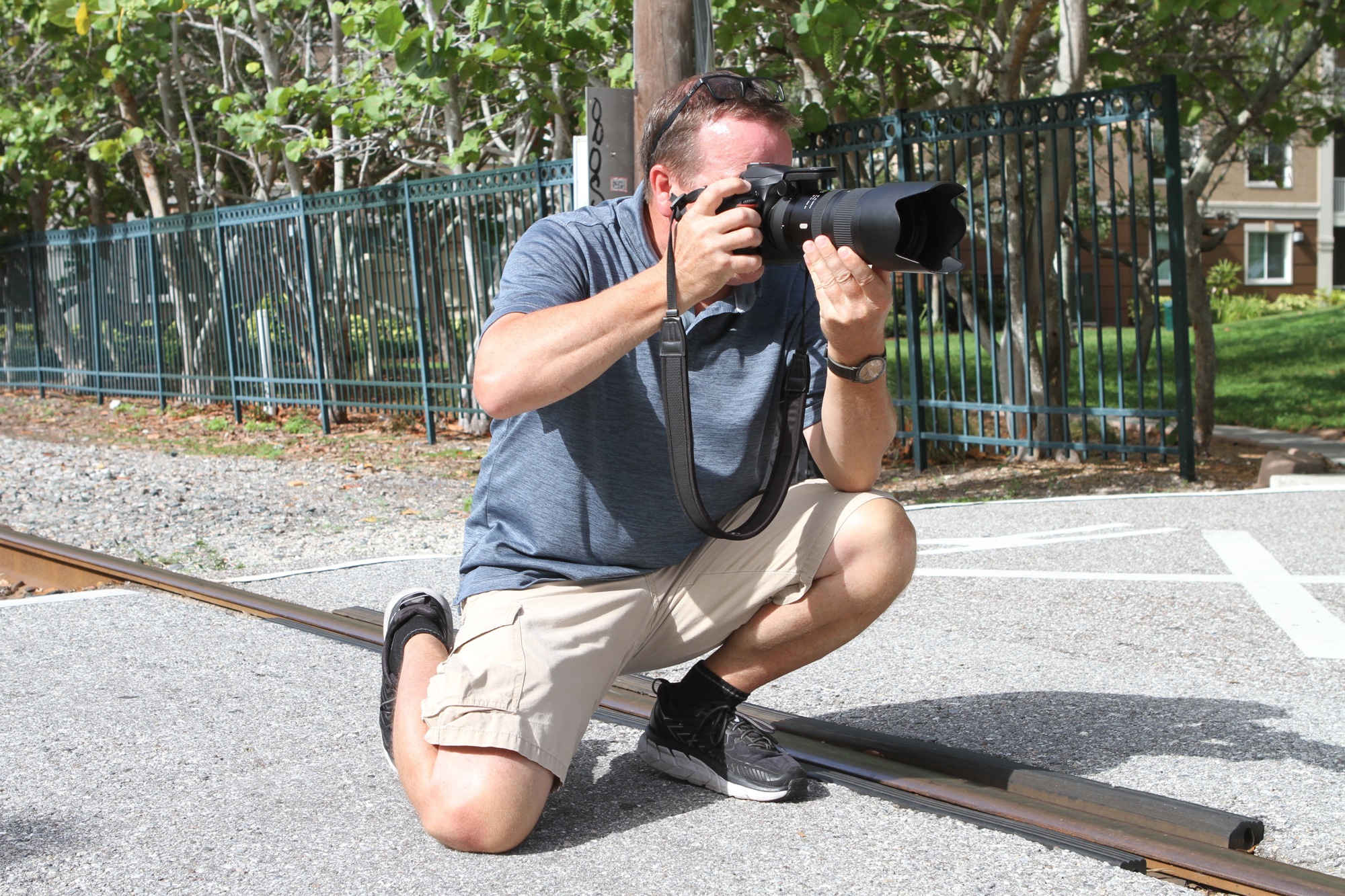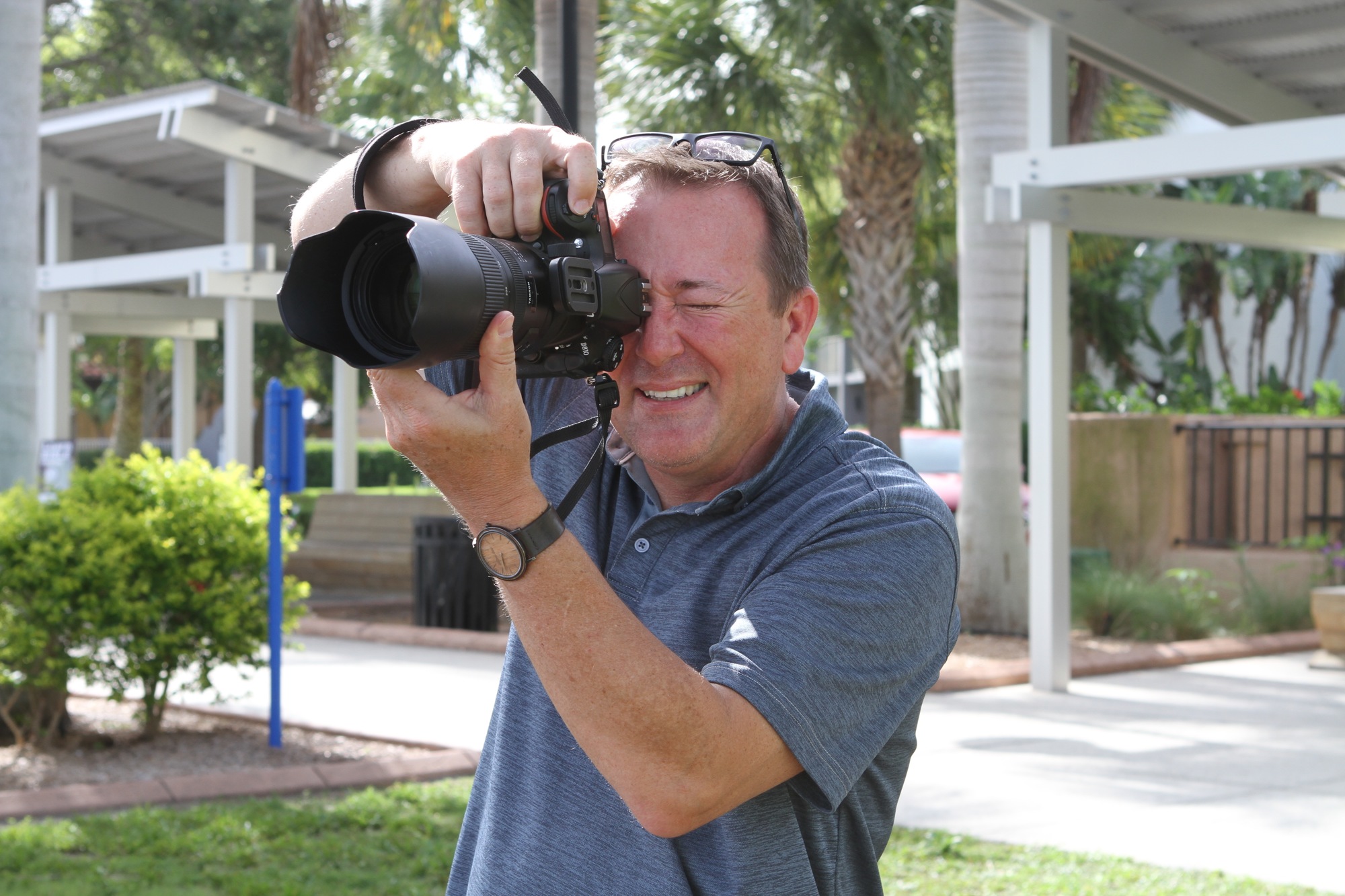- May 6, 2025
-
-
Loading

Several clicking sounds fire out of Peter Acker’s camera in between shouted directions. With every slight head tilt or new arm placement, he is helping Hayley Bishop achieve a longtime dream: to find a family.
The director of photography for the Heart Gallery of Sarasota was shooting photos of Bishop, a 17-year-old culinary school hopeful, because she’s one of more than 200 children in Sarasota’s foster care system seeking a family to adopt her.
Acker takes photos of local children — many of whom are close to aging out of the foster care system — that are then put on the nonprofit gallery’s website and added to pop-up photo exhibits throughout Sarasota, Manatee and DeSoto counties. The goal is that by making these children seen, locals will be encouraged to adopt them.
Bishop said she was initially nervous to have her photo taken, but she soon embraced the shoot after spending time with Acker.
“I liked the idea [that] someone would be there for me and that I’m getting out there,” Bishop said. “I [hope] I can have a family … someone to love me and take care of me and be there for me.”
Acker, 56, and his fellow volunteer photographers at Heart Gallery provide photos for about 70 children every year. The key, he said, is capturing someone’s personality — finding subjects in their best light and eternalizing that moment.

It’s not so much a science as it is a kind of magic. Acker and his fellow photographers attempt to capture the children’s essence with just a few photos.
“[The photos] make us realize it’s all worthwhile,” Acker said. “It’s not an awful lot of time and effort to come do these for me or the other photographers, but it’s so rewarding when someone chooses that child and ends up adopting them. Going to the adoption hearings at the court and seeing the child with their new family and seeing that excitement … because it’s from someone seeing one of our pictures — it’s just priceless.”
PICTURES WITH PROMISE
Sarasota’s foster system might take photos of its children, but they’re not always emotionally resonant to parents seeking to adopt.
“All they have to recruit at the regular government agencies is a cellphone snap against a wall,” Acker said. “They’re underlit and badly exposed. The kid is being processed, so it’s really just a mugshot.”
That’s where the Heart Gallery’s pop-up displays come in. The organization’s displays — which are scattered around high-traffic areas of the three counties it serves — are meant to give interested parties a look at local children up for adoption in a more genuine, comfortable setting. Currently, there’s a pop-up display at the Selby Library and at Art Avenue at the Westfield Siesta Key mall. Local Heart Gallery President Matthew Straeb said there are also displays planned for the Venice Performing Arts Center, Gulf Gate Library and Jacaranda Library in September.
Heart Gallery has nearly 50 photographers who are vetted by Acker. Most importantly, he looks for artists with the ability to connect with their subjects.

Acker travels all around Sarasota, DeSoto and Manatee counties for his shoots, which are often at group or foster homes. Sometimes that’s by necessity. His first-ever shoot was of a 10-year-old with a developmental disability and a feeding tube. He was unable to leave his home.
"That was tough,” Acker said. “You’ve got a kid who can’t respond to verbal cues and can’t speak to you and tell you what he wants. … It’s not always Sears photo shoots.”
The photography process might seem simple, but Straeb argues it requires an empathetic touch.
“Here’s a kid who’s 16, 17 years old,” he said. “He’s been in 20-plus foster or group homes and has never had a birthday party. How does a photographer get that child to trust them in a half hour or an hour? That’s the magic. That’s a gift.”
EMPATHY NETWORK

Heart Gallery of America, the parent organization of the nonprofit, has 85 branches across the U.S. and Canada. Together, they consist of 5,000 professional photographers who help facilitate 7,500 adoptions every year. Straeb likens his volunteer organization to a portal that connects people to the foster care and adoption system.
“We may get 100 inquiries on one child,” Straeb said. “But what happens is that one child is only going to need one family, but the other 99 inquiries can be redirected to other children, and [they can] end up being foster parents, foster homes and volunteers.”
It’s a recruitment service, but it’s one that promotes emotional connections. Straeb said that’s often critical in the foster system.
“During this nine-month process, families are going through training and background checks and home services,” he said. “They’re emotionally attached to that photograph. They only meet the child a few times before the courtroom.”
ONE LAST CHANCE
Heart Gallery caters to the most difficult groups to adopt — children who are older, who are in sibling groups or who have medical or behavioral conditions.
The adoption process isn’t always efficient. It can take years for children to be adopted, with some waiting close to a decade.

Straeb admits that can be a frustrating for him and for his volunteers — after all, these are children’s lives that they’re trying to change.
Sometimes it works, and sometimes it doesn’t. But it’s always worth trying, especially at the end of the road when Straeb, Acker and other Heart Gallery volunteers join foster children with their new parents at the courthouse to finalize the adoption.
Rusty Crawford, a 51-year-old Sarasota resident, felt the power of the Heart Gallery’s photos when he was scrolling through the organization’s website one Christmas Eve a few years ago. There he saw the photo for Ashton — the 16-year-old boy who would soon become Crawford’s adopted son.
“The look on his face said: ‘I want somebody to love me. I want a parent,’” Crawford said. “When they told him about me, everything just clicked. It’s really hard to explain, but I just knew that he was going to be my kid.”